The Diamond Jubilee, London Olympics, Euro 2012… rarely has a single year presented so many opportunities for British food and drink to fly the flag. But what’s the best way to do it? We asked the heads of three leading British food companies, and the organiser of the Love British Food Festival, to assess the opportunities - and challenges - ahead
Our panel:
Mark Fairweather, CEO, Allied Milling & Baking
Christopher Mack, executive chairman of Fresca Group
Mark Allen, CEO, Dairy Crest
Alexia Robinson, organiser of Love British Food 2012
It’s the year to celebrate British food and drink - what should we be proud of?
CM: We have some of the world’s finest farmers and growers, working to extremely high standards. British-grown product is among the safest, best quality food in the world.
AR: All the speciality and luxury foods - local cheeses, cured meats and fine confectionery. Less heralded is our meat, produced to some of the highest standards in the world, and our fruit and veg, which are gloriously varied.
MF: Our industry is fast-paced, agile and constantly evolving. In the UK, we are focused on the consumer, and pride ourselves on our innovation, especially when it comes to environmental responsibility. At Allied Bakeries, we were the first bread brand to carry the Carbon Trust’s carbon reduction label on our packaging.
What does “supporting British” mean to you?
AR: Buying British! If you are not buying British, you’re not supporting it, though if you are buying it and not paying the producer a fair price, then arguably you’re not supporting it either.
MF: It’s about doing the right thing for the British consumer. However, it doesn’t necessarily mean sourcing British ingredients or buying British produce. It is about supporting the British food and drink industry - a significant UK employer.
CM: The drive to support British food and drink is about people wanting to support British enterprise and industry, celebrating our food culture, being more aware of global issues in food chains and caring more about provenance.
MA: We need to appreciate the work that our fellow countrymen have put in to bring us the fantastic food and drink we take for granted - such as the dairy farmer getting up in the middle of the night to deliver a calf.
How can government help?
AR: It should stop gold-plating EU regulations, and consider a tax on imported foods that are not produced to the same standards that our farmers have to adhere to. Perhaps it is even time to appoint a British food tsar in the same way that Boris has appointed Rosie Boycott as London food tsar?
MF: I’d like to see a level playing field across the industry, for example in nutrition labelling. Currently, unwrapped goods aren’t required to declare the nutrition content, while other food companies, like ourselves, invest considerable time, resources and money into providing clear information for our consumers.
CM: Government has a role to play by using opportunities, such as planning policy development, to assist growers who want to use polytunnels and greenhouses. It could also review procurement policy for state-related contracts and exert greater pressure on banks to facilitate more flexible, easily accessible lending in the agri-sector.
Who is showing off their British credentials to best effect?
AR: I think the supermarkets’ own-brand fruit and vegetables is some of the clearest branded British produce around. Müller [with its Shropshire dairy] and Walkers [with its 100% British spud pledge] have led the way in putting Britishness at the core of their activities, and Country Life’s ‘Anchor’s from New Zealand campaign was second to none.
What opportunities do the Diamond Jubilee and Olympics present?
MF: We see the Jubilee as a big opportunity to relate to consumers at a local level, through the groundswell of community spirit and pride. Kingsmill is an official partner of The Big Lunch, and this year sees a special Big Jubilee Lunch. The aim is to get four million people in the UK to break bread with their neighbours on a single day. There will be a huge in-store presence with our key retail partners, a national PR campaign involving a sandwich design competition for kids, and a roadshow visiting city centres across the country.
MA: We were lucky enough to have the Prince of Wales visit our Davidstow creamery last summer, and while he was there, we asked him to make some Cheddar that we will donate to The Prince’s Countryside Fund as part of the Jubilee celebrations. The Davidstow Diamond Jubilee Limited-Edition Cornish Cheddar he made is maturing nicely, and will be sold exclusively through Waitrose and Marks & Spencer in May. It is expected to raise £100,000.
CM: The Olympics are a showcase opportunity, which should benefit many of our brands, with an increased media focus on sport and healthy diets. There’s an opportunity to highlight the great volumes of UK-grown produce that will be in season during the Games.
AR: We’ve moved the dates of British Food Fortnight to run at the same time as the Olympics, under the slogan ‘Love British Food 2012’. We’re working with thousands of shops, pubs and restaurants to organise British food promotions across the country, and we’re running a programme of Family Feasts for LOCOG. The eyes of the world will be upon us, and we have an opportunity of a lifetime to show the world how wonderful British food is. Talk to any journalists who cover the Olympics, and they will tell you that food is a core part of the way they experience the host country. There is all to play for, and the food industry should go into this summer with the athlete’s mantra, “you don’t win silver, you lose gold”.
What could we do better in terms of flying the flag?
AR: Promotion, promotion, promotion. We have come a long way from the negativity towards British food that existed post-BSE, but we have only moved from negativity to apathy. I often wonder how much would be achieved if you gave the job of promoting British food to the marketing director of a brand such as Nike - I would love to see billboards across the country extolling the glories of British food.
CM: There is still a gap in understanding how food is grown and produced. Instead of apologising for large-scale farming and applications of technology to growing, we should be celebrating the lengths to which producers go to make sure that British-produced food is synonymous with great-tasting, safe, healthy products.
What is our biggest challenge?
CM: It has to be about cost of production, and getting the superior quality of UK products recognised in price. The consumer wants to buy British but is unwilling to pay a premium for provenance. This raises a possible threat to UK producers, as the recent improvement in performance of sterling is good news for the importer. Budget-conscious retailers and shoppers will be forced to choose between price and provenance unless UK producers can find a way to communicate value more effectively.
MA: British food and drink is not always the cheapest because, quite rightly, we operate to extremely high standards. We should all work to ensure that the food we make is not pushed out by cheaper products produced to lower standards elsewhere in the world. Labelling has a major part to play here - it should not be possible for food and drink produced abroad to be labelled as ‘British’ by rule bending.
How important are international markets for British food and drink?
CM: The global market is of huge importance. All the retailers want the best product without question, and with global sourcing this is perfectly possible, but it’s price-driven, and there is a clear quandary when a UK offer competes with a cheaper but comparable product abroad.
MA: On my trips abroad, I love looking to see what UK food and drink is on sale to genuine foreign markets. Surprisingly little. We have Cathedral City Cheddar in most EU countries and even Russia, but don’t expect these markets to make a huge difference to us in the near future. For a company of our size, it is quite difficult to focus on both domestic and overseas markets, and we have enough opportunities at home.
Who’d make a great ambassador for British food and drink?
CM: It has to be Jamie Oliver. He’s well known and respected worldwide, and his relentless promotion of healthy eating fits really well with the fresh produce industry.
MA: I’m not sure he’d want to do it, but you could do a lot worse than John Lydon. He is passionate about British food and farming, and certainly catches everyone’s attention.
AR: I still have high hopes for Dalton Philips at Morrisons. Market Street, the 100% fresh British meat approach, M Kitchen, M Fest - all have the potential to set a new benchmark for British food in retail. If one wants a celebrity ambassador, then we couldn’t do better than the Duke and Duchess of Cambridge - he was brought up in a farming community, so understands agriculture, and if she could do for British food what she has done for sales of Reiss dresses, that would be spectacular!
MF: With her popularity at an all-time high in her Diamond Jubilee year, it has to be the Queen herself!
Olympic feast

The Games’ head of catering, Jan Matthews, outlines her vision for London 2012.
- 1
- 2
- 3
- 4
 Currently
reading
Currently
reading
Best of British: Flying the flag
- 6








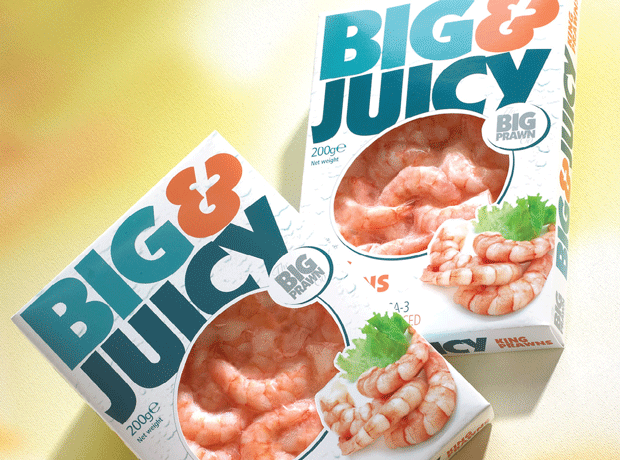
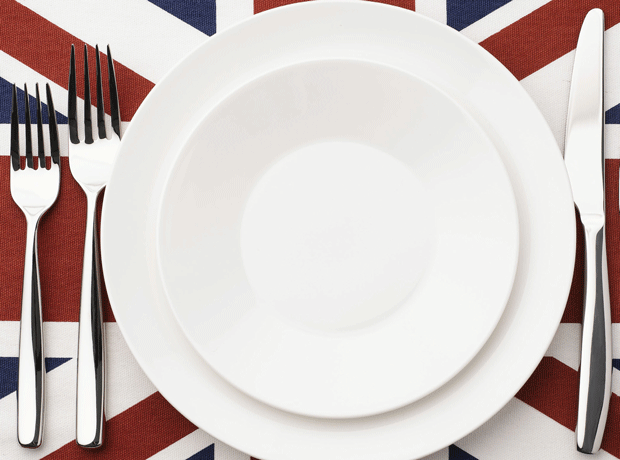
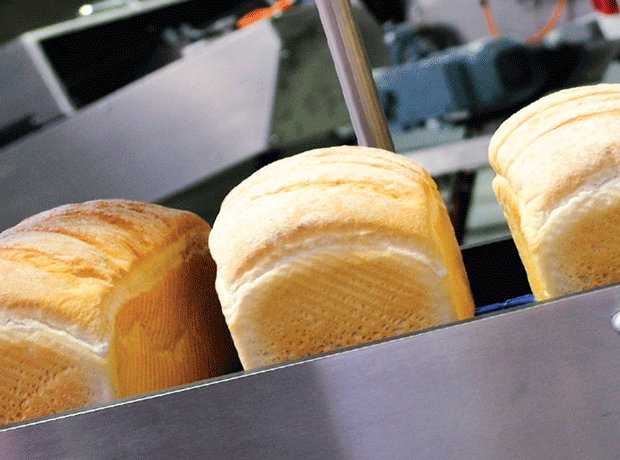







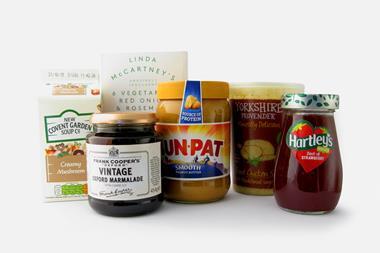



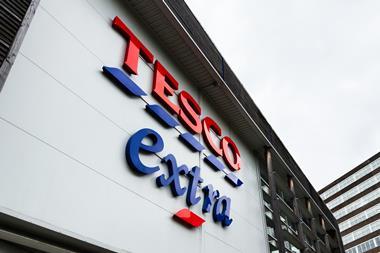






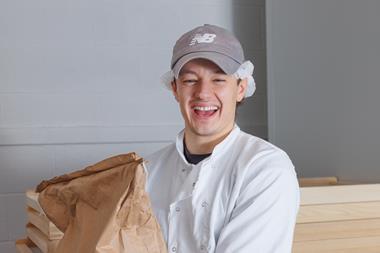
No comments yet